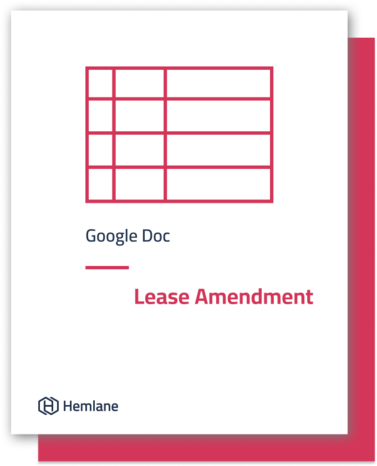
Property Management Lease Amendment
If you’re looking to make changes or additions to your lease agreement between you and your tenants, adding a lease amendment is easier than creating a brand new contract. An amendment can be used for many alterations such as changes in the rental price, or length of lease. Keep in mind that both parties must still agree to this document to ensure everyone is on the same page.
To help you with this journey, we’ve prepared a useful template that can be used anytime you need to make changes to your existing lease agreements. Here are some things to consider when adding to your existing agreement.
When is a lease amendment necessary for property management?
A lease amendment is best used when making changes to the existing lease agreement. It can be used for, but not limited to:
- Adding or removing a tenant
- Changing the amount of rent
- Altering the length of the lease
Can a homeowner refuse to amend the lease agreement?
Yes, the property owner can refuse to amend the lease under certain circumstances. For example, if the proposed amendment violates any laws or regulations. It is always best practice to consult with a real estate attorney for any legal advice.
Are there any legal requirements or forms that need to be filled out for a lease amendment?
The legal requirements for a lease amendment vary by state and jurisdiction. However, in general, a lease amendment should be in writing, signed by both parties, and should clearly specify the changes being made to the original lease agreement. The amendment should be dated and should reference the original lease agreement by date and title.
Is there a clause that I cannot change with a lease amendment?
Again, the legal requirements vary by state and jurisdiction but generally, here are 4 clauses or terms that cannot be changed with an amendment:
- Illegal clauses
- Waivers of legal rights
- Limitations on the landlord's liability
- Unconscionable clauses
As always, we recommend you seek advice from your lawyer if you are unsure how to proceed.